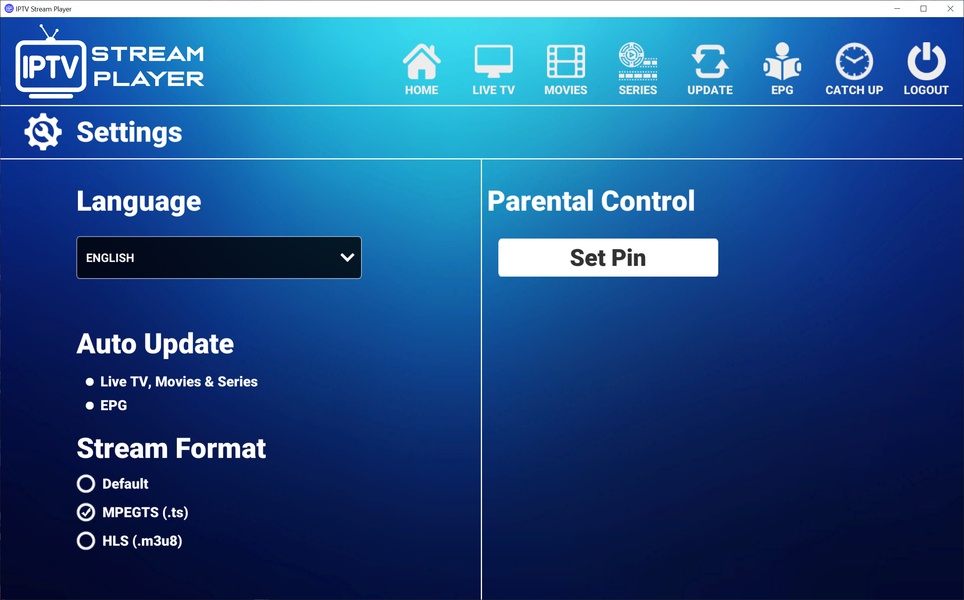Just How IPTV Works: Your Full Guide to Streaming TV Online
IPTV, or Internet Protocol Tv, represents a significant change in just how we eat tv content, moving away from typical broadcasting techniques to a much more adaptable, internet-based method. By using a client-server version, IPTV enables individuals to access a large variety of programs with electronic packets transmitted over broadband connections.
What Is IPTV?
In the realm of digital media, IPTV, or Internet Protocol Television, represents a transformative strategy to supplying tv web content. Unlike typical broadcasting methods, which depend on terrestrial, cable television, or satellite systems, IPTV makes use of net procedure to stream material straight to devices such as tvs, smart devices, and tablets. This innovation enables users to access a variety of programs through high-speed net links, supplying adaptability and comfort.
IPTV can be categorized into 3 main solution versions: real-time television, video as needed (VOD), and time-shifted tv. Online tv permits individuals to see broadcasts in real-time, while VOD supplies access to a collection of material that can be checked out at the audience's benefit. Iptv. Time-shifted tv allows visitors to enjoy programs at their preferred time, also if they initially aired online
In addition, IPTV usually integrates interactive attributes, such as digital program guides and video clip recording abilities, improving the viewing experience. As customers significantly demand tailored material and on-demand solutions, IPTV attracts attention as a compelling remedy, reshaping the tv landscape and offering extraordinary options for viewers worldwide.
How IPTV Works
The smooth assimilation of innovation and individual experience specifies just how IPTV operates. Web Method Television (IPTV) provides television programs and various other multimedia web content using internet methods, as opposed to conventional terrestrial, satellite, or wire formats. This procedure includes inscribing video clip content into digital packets that are transferred over a broadband net connection.
IPTV normally uses a client-server version where content is kept on a web server and sent out to the customer's tool-- such as a smart TV, computer, or smart phone-- upon request. The material shipment is promoted through a set-top box or an application that deciphers the incoming data and presents it on the screen. Notably, IPTV operates a real-time or on-demand basis, permitting customers to access a wide array of networks and shows.
A crucial aspect of IPTV is its dependence on a durable broadband link, which makes sure smooth streaming and high-grade video clip playback. Additionally, IPTV systems commonly include innovative features such as digital program guides (EPGs), time-shifting, and video-on-demand (VOD), improving the seeing experience. Overall, IPTV represents a substantial advancement in just how viewers eat tv material, leveraging the power of the internet for boosted access and adaptability.
Advantages of IPTV
While typical television methods often limit audience selections and availability, IPTV provides numerous advantages that improve the overall watching experience. One of the primary benefits is the comprehensive variety of material available. Viewers can access a substantial library of networks, on-demand shows, and movies, customized to specific preferences.
In addition, IPTV supports numerous gadgets, permitting customers to stream material on smart devices, tablets, clever TVs, and computer systems. This adaptability makes sure that customers can watch their preferred programs anytime and anywhere, as long as they have an internet connection. IPTV usually features interactive aspects, such as record, rewind, and time out capabilities, providing individuals with greater control over their checking out routines.
Cost-effectiveness is one more noteworthy benefit. Several IPTV services provide competitive prices contrasted to traditional cable television subscriptions, typically without surprise costs or long-term agreements. This affordability makes it simpler for consumers to explore different channels and content without considerable economic dedications.
Finally, IPTV generally flaunts superior image top quality, consisting of high-definition and 4K choices, enhancing the overall watching experience. Jointly, these advantages make IPTV an engaging choice for contemporary audiences seeking flexibility, variety, and quality in their entertainment options.
Sorts Of IPTV Solutions
IPTV services can be categorized right into a number of unique types, each catering to various audience needs and choices. The key classifications include real-time tv, on-demand material, and time-shifted IPTV.
Live read tv IPTV supplies real-time streaming of broadcast channels, allowing audiences to view programs as they air. This solution carefully resembles traditional cable television, giving accessibility to a series of networks, including news, sporting activities, and amusement.
On-demand IPTV, on the various other hand, enables customers to see and choose material at their convenience. This consists of motion pictures, series, and docudramas that can be streamed whenever the visitor picks, supplying versatility and personalization.
Time-shifted IPTV incorporates aspects of both real-time and on-demand solutions. It allows customers to pause, rewind, or document live broadcasts, offering them the capacity to manage their checking out experience. This service is particularly useful for those with active schedules, as it suits viewers who may miss online programs.

Establishing Up IPTV
Setting up IPTV involves several crucial actions to guarantee a smooth watching experience. First, you need a stable internet connection, ideally a broadband solution with a minimal rate of 10 Mbps for conventional meaning and at the very least 25 Mbps for hd streaming. This makes sure minimal buffering and a smooth playback.
Following, choose an IPTV provider. Research study different options, contrasting their channel offerings, pricing, and user testimonials. As soon as you have actually picked a provider, you usually get login credentials and a link to access the IPTV service.
To begin streaming, you'll require a compatible tool - Iptv. Several IPTV services can be accessed through Smart TVs, streaming boxes like Roku or Amazon Fire television, computer systems, or mobile phones. Download the equivalent app or software for your selected system
After installation, visit using your qualifications and set up any essential settings, such as parental controls or channel preferences. Ultimately, connect your tool to your television by means of HDMI, and you're ready to appreciate a broad array of networks and on-demand content. Routinely look for software application updates to boost performance and safety, making certain an optimal IPTV experience.
Verdict

IPTV, or Net Protocol Television, stands for a substantial change in how we consume television content, relocating away from standard broadcasting approaches to a more flexible, internet-based technique.In the realm of digital media, IPTV, or Internet Method Tv, represents a transformative method to providing television material.IPTV can be classified right into 3 main solution models: live television, video on demand (VOD), and time-shifted tv. Net Method Tv (IPTV) provides tv programming and various other multimedia web content by means of web protocols, instead than traditional terrestrial, satellite, or cable television styles. In general, IPTV stands for a substantial evolution in how audiences consume television material, leveraging the power of the web for boosted accessibility and flexibility.
Comments on “IPTV-- Leading Advantages of Switching to Web TV”